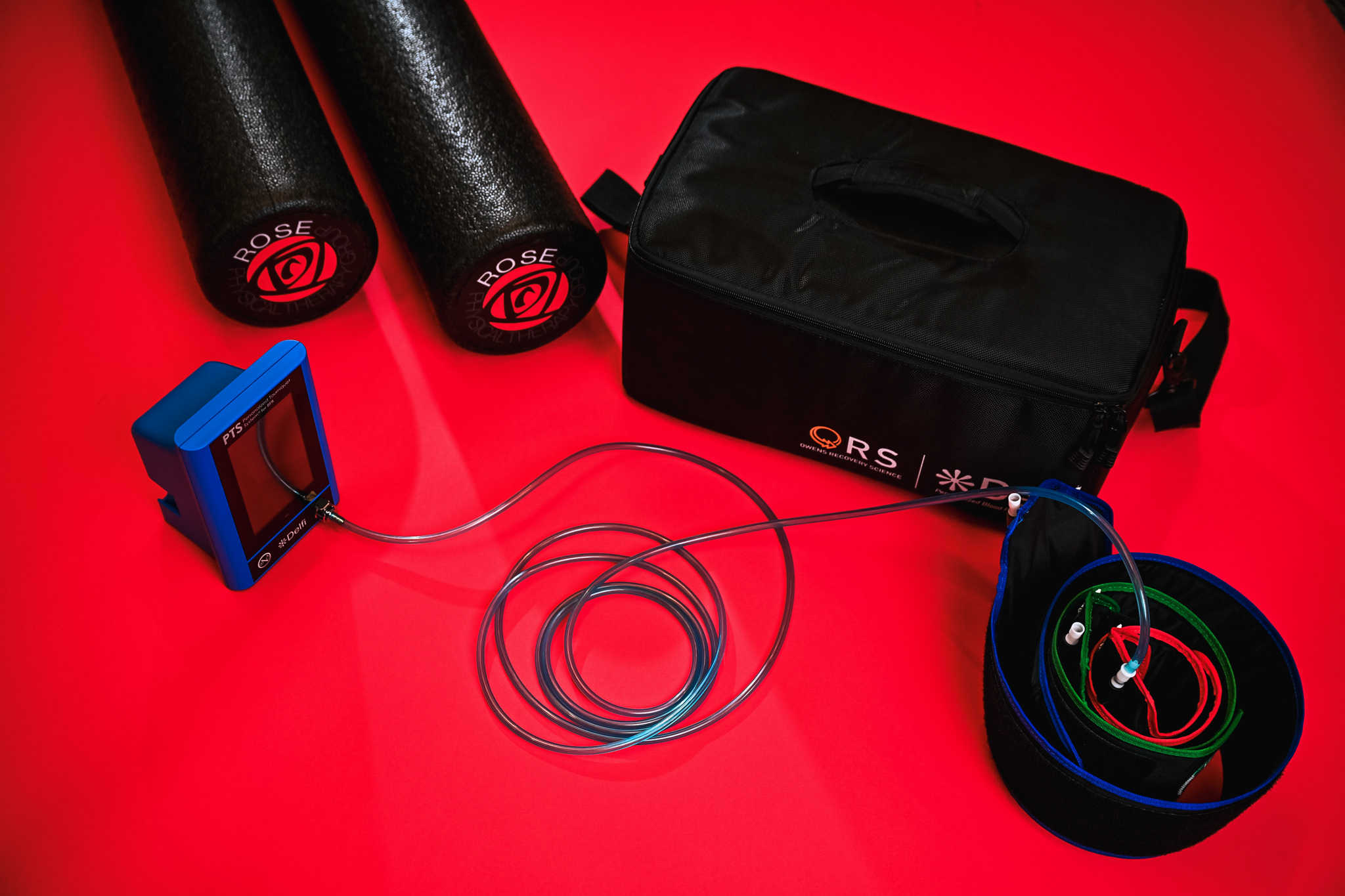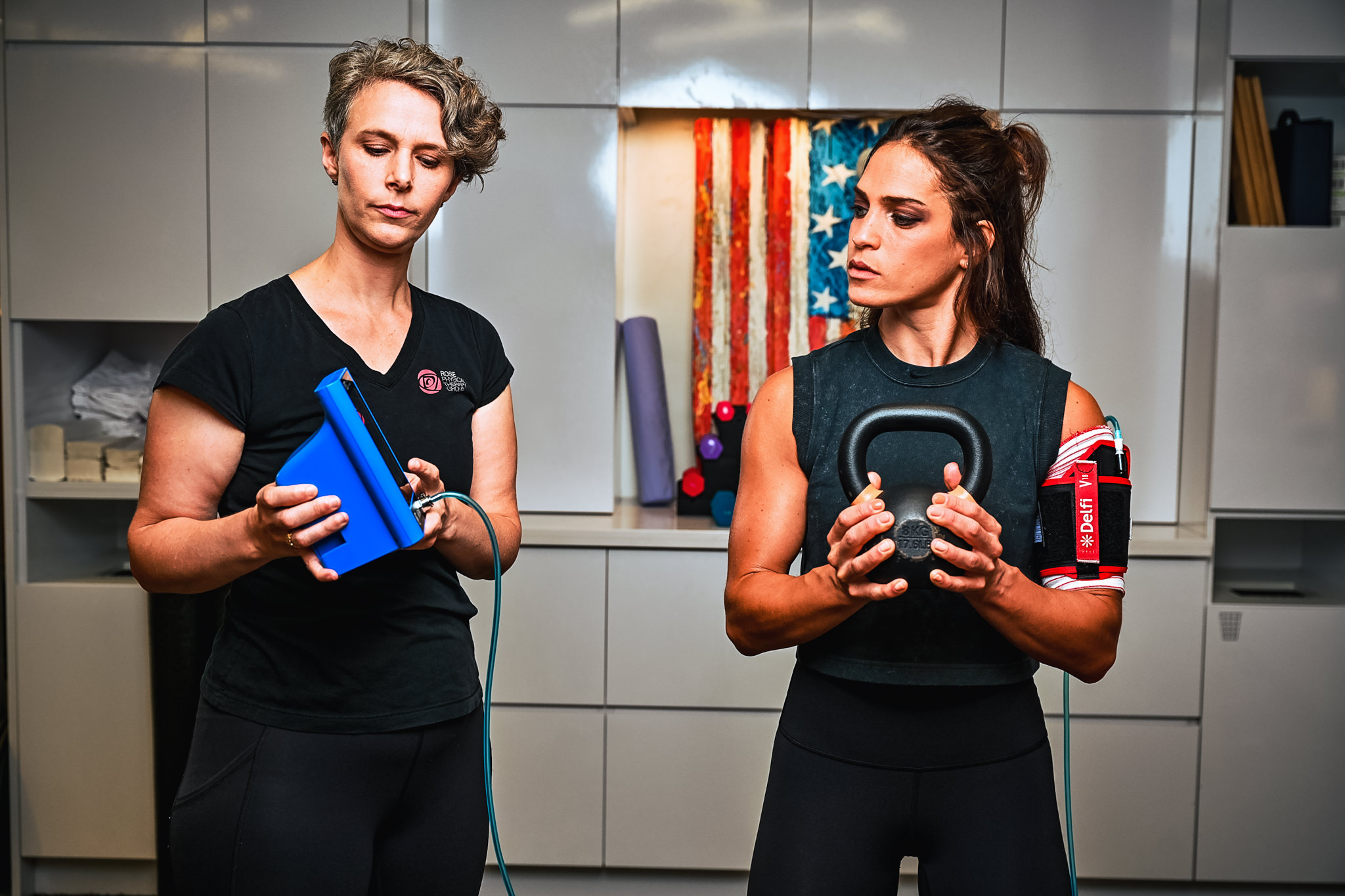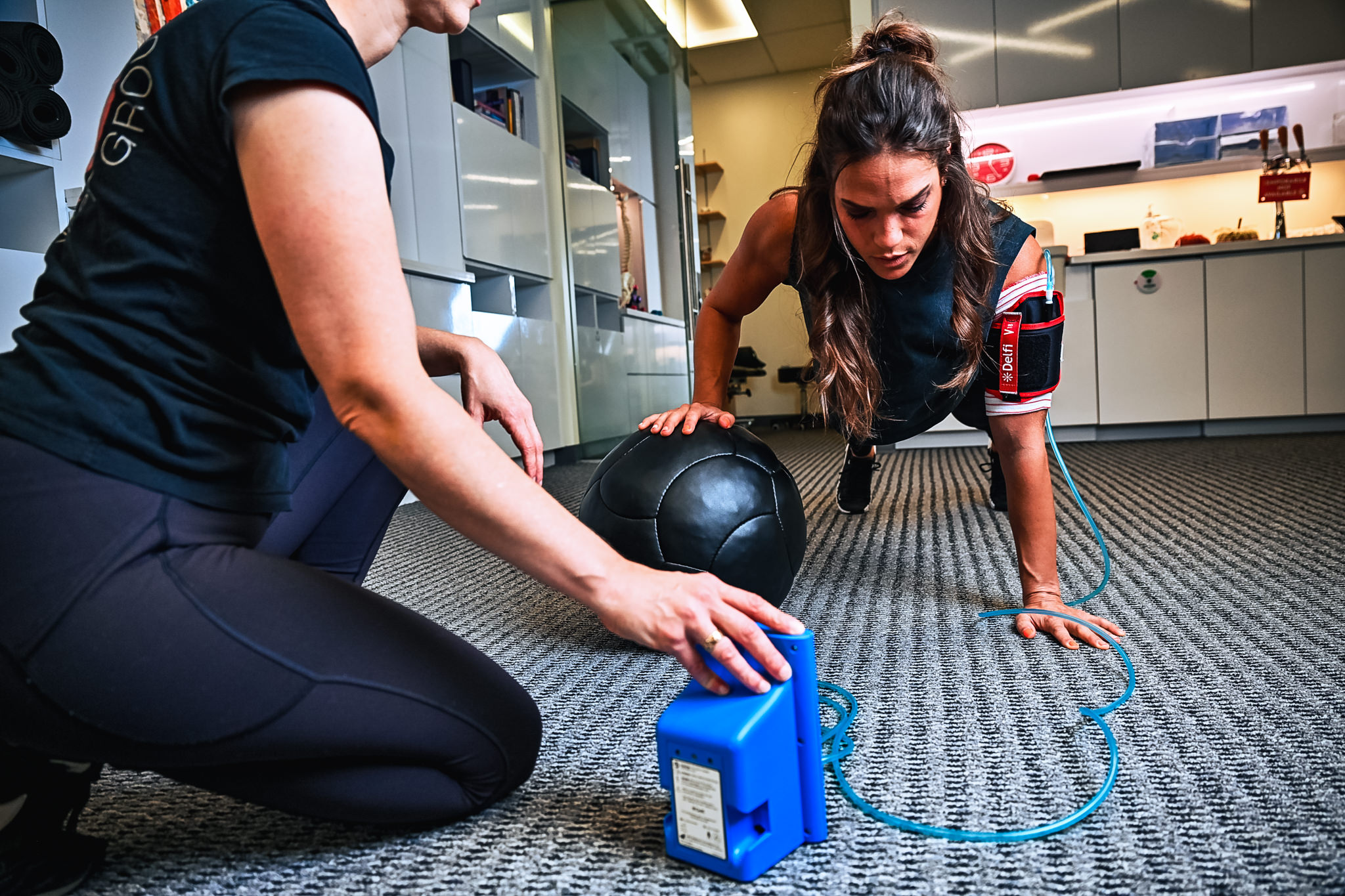Three advantages to using blood flow restriction for recoery from surgery are its speed, its effectiveness with less stress on the patient, and it's generally helpful for any patient.
Three Advantages to Blood Flow Restriction (BFR) After Surgery
After orthopedic surgeries like a rotator cuff repair, knee replacement, or hip replacement your muscles will quickly begin to become weaker due to lack of use and pain during the recovery process. While traditional physical therapy is adequate at helping the recovery process, here at Rose Physical Therapy we have the most effective and researched-based interventions to speed up your recovery times. One of which is blood flow restriction.
So what is blood flow restriction you may ask? It is a process in which a physical therapist uses a compressive machine very similar to a blood pressure cuff in order to partially occlude an artery to a specific muscle group. Keep reading below to see the top three advantages to using blood flow restriction after an orthopedic surgery.

Increased muscle growth with less physical stress to an injured joint
After a surgery like a joint replacement or rotator cuff tear, your joints and involved muscles are very painful and often are unable to produce force like they normally do. This lack of motion and inability to contract causes muscles to shrink or atrophy very quickly. In order to prevent this, typically you would do standard strength training; however that can be contraindicated or too painful to do. This is where blood flow restriction comes in. By partially occluding blood to a specific muscle group during normal exercise, we increase the metabolic demand the muscle has without having to stress it with heavier weights. This way the muscle still gets the stimulus it needs to grow without requiring a heavy load that your joint may not be able to handle.

It is a quick, non invasive procedure that can speed up recovery until you are able to transition to normal strength training
Blood flow restriction does not require any extra medications, needles, or other invasive interventions to be performed. It is a simple and short procedure that all of our experienced staff here at Rose Physical Therapy can provide after your surgery. Blood flow restriction typically takes anywhere between 5-10 minutes and easily fits into your tailored exercise plan provided by our highly qualified therapists. A normal blood flow restriction session will be used while doing normal body weight exercises like squats, arm raises, or bridges without much weight added. These “normal” body weight exercises will feel much more fatiguing with blood flow restriction and cause similar muscle gains that can be seen using conventional heavy strength training. After your joint has healed, your therapist can then begin to transition you into more advanced strength training exercises.

Anyone Can Do Blood Flow Restriction
You may have heard of blood flow restriction in the news with professional athletes using it to help them get back on the field as fast as possible after an injury. While this is certainly true, it can be scaled up or down to anyone! In the clinic we use blood flow restriction for anyone ranging from elite runners/cycle’s or someone recovering after a knee replacement. When working with a clinician at Rose Physical Therapy they will evaluate your current orthopedic needs, design a rehabilitation program, and use blood flow restriction as a supplemental treatment into your program in order to provide you an efficient and all encompassing plan of care to help you recover as quickly as possible.
Blood flow restriction is research validated intervention that may help speed up your recovery after an orthopedic injury or surgery. Here at Rose Physical Therapy in Washington D.C. we have a highly qualified staff that can utilize blood flow restriction to help you reach your rehabilitation goals. If you are interested in blood flow restriction and would like to schedule a consultation, book an appointment with me or any of our other physical therapist’s. I look forward to seeing you in the clinic!


